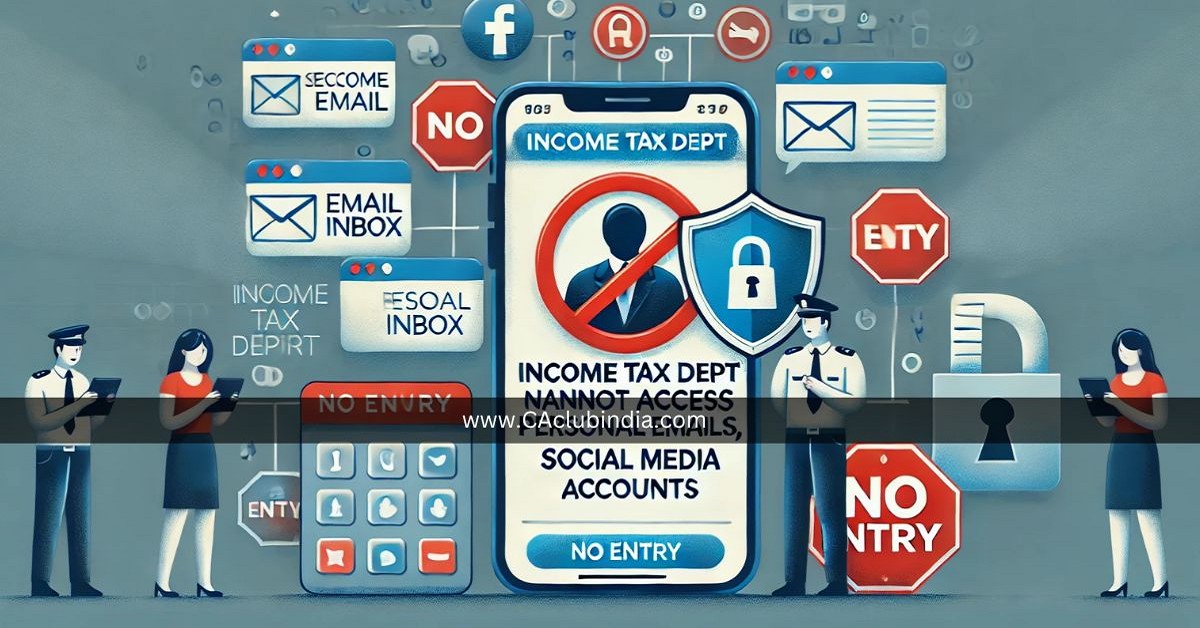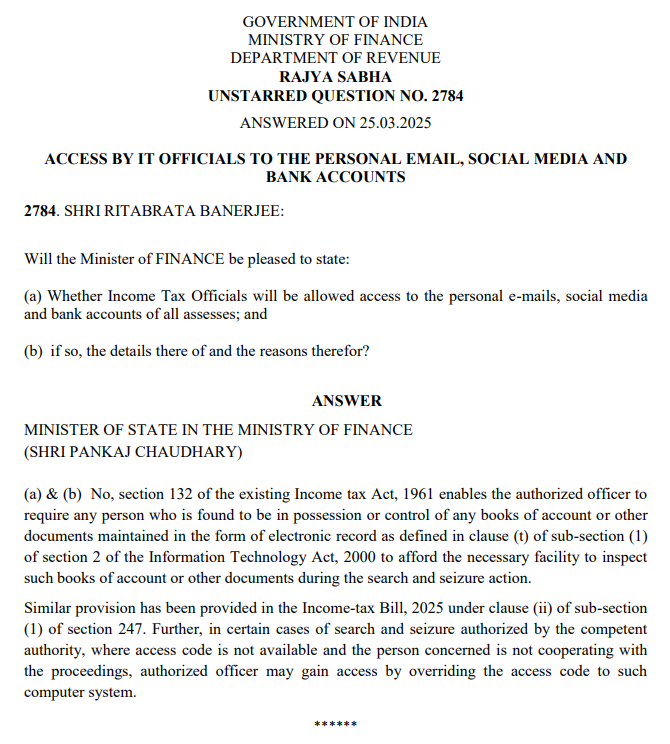The Government of India has clarified that Income Tax officials will not have unrestricted access to personal emails, social media, or bank accounts of taxpayers. The response was given by Minister of State for Finance, Shri Pankaj Chaudhary, in reply to an unstarred question (No. 2784) raised in the Rajya Sabha on March 25, 2025.

Key Highlights of the Government's Response
- The Income Tax Act, 1961 (Section 132) allows tax officials to inspect books of accounts and electronic records during search and seizure operations. However, this access is limited to official proceedings and is not a blanket authorization to monitor personal communications.
- The Income-tax Bill, 2025 (Section 247) retains similar provisions, ensuring that tax officials can inspect relevant digital records in case of an investigation.
- In cases where search and seizure are authorized, and if a person refuses to cooperate or provide access codes, the authorized officer may override the access restrictions on a computer system.

What This Means for Taxpayers
This clarification addresses concerns about privacy and surveillance in tax investigations. While the law permits access to financial records and digital documents in specific cases of search and seizure, personal emails, social media accounts and bank details remain outside the purview of routine investigations. Only in situations where tax evasion is suspected and a taxpayer is non-cooperative, can authorities override access controls to inspect relevant financial data.
Privacy Concerns and Digital Rights
The government's clarification aims to balance tax enforcement with individual privacy rights. However, digital rights advocates may still seek further safeguards to prevent potential misuse of these provisions.





 CAclubindia
CAclubindia


